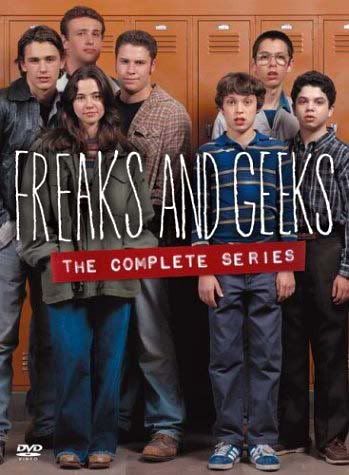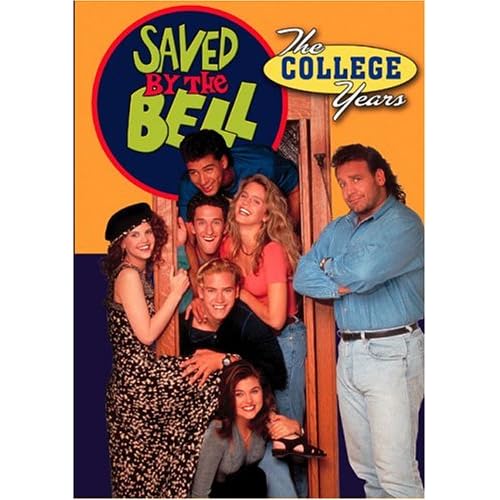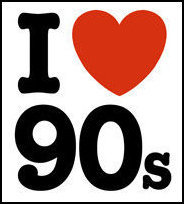
It's a tale as old as television time. Someone comes up with a fantastic idea for a show, it premieres to rave reviews and critical praise, it seems poised on the brink of success...and no one watches it. There's no real formula to these things. No matter how strong a show, there's no way of knowing whether it will become a runaway hit or fizzle out into obscurity. With all the terrible shows that have been on the air for ages, it's clear you just can't count on the viewing public.
Thankfully, the internet hosts more than its fair share of elitists and snobs who are more than willing to show us all the error of our television watching ways. Really, just look at anyone who comments on the Onion's AV club. These types quick to tell us all what heathens we are for holding mainstream television viewing habits. To these TV snobs, popularity amongst the masses is the kiss of death. Everyone knows the only way to determine quality is if everyone hates something. Aside from a select chosen few who have the unique wisdom and intelligence to understand it, of course.
Luckily for you, I'm only sort of like that. I wouldn't consider myself an elitist. I just think I'm smarter than everyone else. What? I'm kidding. Only most people.
Joking aside (and for the record, I am joking), it's not about snobbery. It's just pure luck, plain and simple. Some shows make it, and others fly under the radar and face cancellation. Thanks to the almighty power of DVD, though, not to mention all sorts of online clips, there's hope for you yet on some of these:
Freaks and Geeks
This is one of those classic examples, the show everyone brings up in praise of underrated media everywhere. While nowadays some people are sick of the ever-growing Judd Apatow empire and its monopoly on the comedy market, back then he was a fledgling producer pushing a little show about high school misfits. He assembled a team of talented young comic actors and gave them a great script, but audiences just weren't biting. Apatow was loyal to his cast picks, though, and featured them all heavily in future projects. It's safe to say that even if you never saw an episode of Freaks and Geeks a day in your life, you'd recognize most of the ensemble today.
The show was set in the 1980s in small-town Michigan and focused on the daily lives of two groups of social outcasts: the "freaks" and the "geeks". It's a winding story of adolescent self-discovery and tribulations, and the show treated its characters with respect. Despite its disparaging title, the show's characters were more than the stereotypical nerds. They were multifaceted enough that we could relate to them in a distinctly human way. It's no wonder the show's become a cult classic: with the extensively detailed and commentated DVD release, it's every elitist nerd's dream.
Unfortunately, audiences responded similarly tepidly to Apatow's sophomore sitcom effort, college comedy Undeclared which lasted a single season from 2001-2002. You've got to admire his stick-to-it-ness though. He certainly got his due.
The Ben Stiller Show
Creating a sketch comedy show requires a delicate balance. Over the years, the marketplace has been flooded with them, some funny and some falling flat. It's always something of a crapshoot. This Ben Stiller's foray into sketch comedy came early in his career, preceding his ascendancy into movie stardom. And, surprise, surprise, Judd Apatow wrote for this one too. Was there any TV pot in which he had no hand? Any unpopular ones, I mean.
This show was 90s incarnate. With supporting stars like the then-unknown Janeane Garafalo and Andy Dick, this show oozed Gen X-iness from every frame. It began with a short run on MTV and was later picked up by FOX, impressed with the debut. The show mainly parodied popular media, but it was just a tad too witty and wicked for its own good. It overstepped that boundary of middle America by giving us multi-layered creative jokes that don't test well with wide audiences. TV snobs, yes, but regular people, no. That equation, however, usually equals good DVD sales over a decade later from die-hard fans, so it wasn't a total loss.
The Critic
Okay, okay, you got me. There were technically two seasons of The Critic, though each had a very limited number of episodes and showed on two different networks. In The Critic, Jon Lovitz stars as Jay Sherman, "New York's third-most popular early-morning cable TV-film critic". The show parodied popular movies and Jay offered his critiques, set against the backdrop of plots based on Jay's everyday life. In an ironic twist of fat, the Jay character has an aversion to popular taste and is generally contemptuous of well-liked media. No wonder elitists like this show so much. Jay is them. He is the epitome of the snobby intellectual New Yorker on which all intellectual poseurs base their TV show preferences. A near-perfect fit.
A full season of the show was produced, but ABC canceled The Critic after thirteen episodes. As other episodes were already moving through production, FOX jumped on the bandwagon and picked up the rest of the season, only to drop it once the remaining ten had aired. The now-defunct UPN was in talks to air some more episodes, but the deal fell through. Webisodes premiered in 2000, but it just wasn't the same. You'd think a show with Simpsons crossovers would be able to garner some interest, but it just never took off.
My So-Called Life
No, your eyes do not deceive you. I posted the entire first episode above, in hopes that you'll watch it and be pulled into the angsty goodness that was the underrated My So-Called Life. This is one of those other quintessential examples of a show that died too young. I may never recover from the shock of learning I'd never find out the answer to the season finale's cliffhanger. It plagues me still. Brian or Jordan? If you have any insights, do share. I'm still considering the possibilities.
On the other hand, this show was pretty heavy-handed with the issue-tackling. It squeezed so much into its 19 hour-long episodes, it's almost hard to imagine a continuation. In one episode, Angela muses, "When someone dies young, it's like they stay that way forever, like a vampire." Such is the case of My So-Called Life. In its existing canon, it's nearly perfect. It never took that ratings-seeking risk that could have tainted its goodness. It gets to stay that way forever, as it should. Like a vampire, only with less bloodsucking and sparkling in the sunshine.
The Dana Carvey Show
Like I said, sketch comedy shows are shaky ground, creatively speaking. Not everything that succeeds as a smaller part of a larger show will fare well when released into the wild unshielded by the popularity of its parent show. Dana Carvey was very popular on Saturday Night Live, and had a loyal following ABC hoped to to bring on board to his self-titled debut. The show was a little risque, especially considering it aired right after the family comedy Home Improvement. The sponsors were none too pleased with the iffy content, which combined with the plummeting ratings spelled imminent early cancellation.
We did get one good thing out of it: The Ambiguously Gay Duo, which later re-premiered on SNL. Thanks, Stephen Colbert and Robert Smigel. You guys did us proud.
Of course, there were many other shows that didn't get their due, but that's all we've got time for today, folks. Now they really didn't get their due, considering I wouldn't even pay tribute to them here. So, I'm sorry, Eerie, Indiana, Twin Peaks, and all you others. You've been doubly screwed. Luckily, there will always be a vocal contingency of TV elitists to keep singing your praises, canceled TV shows. There's hope for you yet. You know, on DVD--the TV snob's medium of choice.





